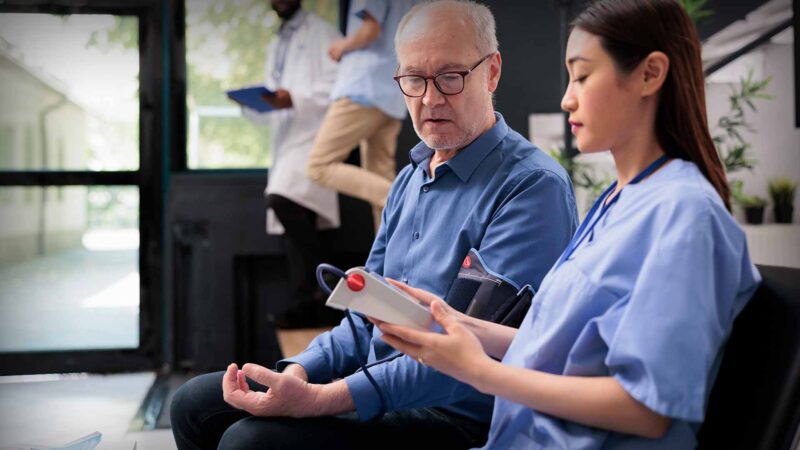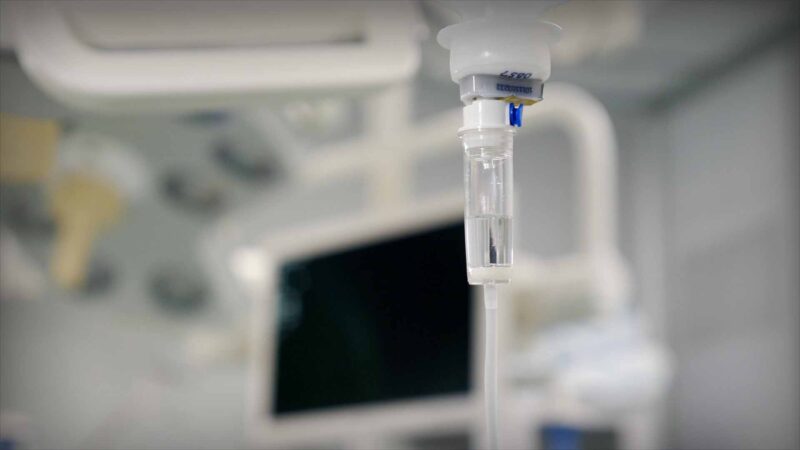In 2023, there are a number of changes occurring in dental services including the start of a new Senate inquiry and new registered nurses in residential aged care. Yet in the meantime there are gaps and delays in dental and oral health interventions for elderly Australians, unless training is more widely deployed.
Dental and oral health are important for the elderly for a number of important reasons:
- Maintaining overall health: Good dental and oral health are important for maintaining overall health in the elderly. Poor oral health can contribute to a range of health issues, including cardiovascular disease, diabetes, and respiratory problems.
- Nutrition: Maintaining good oral health is essential for proper nutrition, particularly for the elderly who may have difficulty eating due to tooth decay or missing teeth. Poor oral health can lead to malnutrition, which can exacerbate existing health problems.
- Pain management: Dental problems such as cavities, gum disease, and tooth infections can cause pain and discomfort, which can be particularly challenging for the elderly. Treating dental problems promptly can help manage pain and improve quality of life.
- Socialisation: Maintaining good oral health is important for socialisation and maintaining a positive self-image. Missing teeth or other dental problems can cause embarrassment and social isolation, which can negatively impact mental health and well-being.
- Preventing infection: Good oral hygiene is essential for preventing infection, particularly for the elderly who may be more susceptible to infections due to a weakened immune system. Poor oral health can contribute to infections such as pneumonia, which can be particularly dangerous for the elderly.
Overall, maintaining good dental and oral health is important for the elderly to maintain overall health, manage pain, improve nutrition, socialise, and prevent infections. Regular dental check-ups and good oral hygiene practices are essential for achieving and maintaining good oral health.
Australian Health Journal spoke to Leonie Short, a dental therapist working for Seniors Dental Care Australia on what she considers are dental and oral health priorities for the elderly, based on her work in the aged, home and disability sectors.
She passes her thoughts on the repetitive findings likely identified by the new Senate Select Committee into the Provision of and Access to Dental Services in Australia. She sees the need for funding a Seniors dental benefit scheme as the higher priority instead.
Leonie also speaks to the upcoming requirement for residential aged care having a registered nurse on site. There is a gap in the knowledge and evidenced based oral health care in residential aged care, for even cleaning of teeth or dentures. This training is provided by her organisation to nurses, support workers and carers.
Leonie recognises in Australian society, more elderly people are retaining their natural teeth, with crowns, implants and partial dentures and can be very complex to manage. However in her 9 years working in aged care settings, she clearly sees a lack of oral health care training.
You Might also like
-
Dental marketing insights from leading authority
Winning the Australian Dental Industry Award for Marketing has had a big impact to Dental Marketing Solutions. As Angus comments in closing, “Receiving the award is social proof to say, well, these guys must know something, because an independent body of their peers has assessed them and said”. He added, “Certainly it’s been good in terms of building our business.”
-
Unleashing the potential of Paramedic skills and knowledge
According to a prominent paramedicine academic and researcher, paramedics have the potential to provide much-needed care in the community, changing the traditional healthcare model. Research points to paramedics having a wider healthcare workforce impact based on their ability to identify and fix problems 24/7.
Dr. Brendan Shannon is Head of Postgraduate Programs in the Department of Paramedicine at Monash University and a member of The Australasian College of Paramedicine. His interests including refining healthcare models, to ensure underserved communities receive requisite care. These alternative care pathways, like outreach programs, can work out of hospitals to provide care in underserved communities with social and complex chronic conditions.
-
Alfred Hospital leading in pharmacy services for critically unwell patients
Cristina Roman, is the Lead Pharmacist at Alfred Emergency Trauma Centre. In her 12 years working in the Emergency Department, Cristina has established pharmacy services, and filled gaps in patient care with new models of care.
One of those models of care adopted by the US and other countries, is involving pharmacists for critically unwell patients that present to the emergency department.
Australian Health Journal spoke with Cristina Roman and Lisa Bremner, Advanced Training Resident Pharmacist at Alfred Hospital Emergency Trauma Centre.



